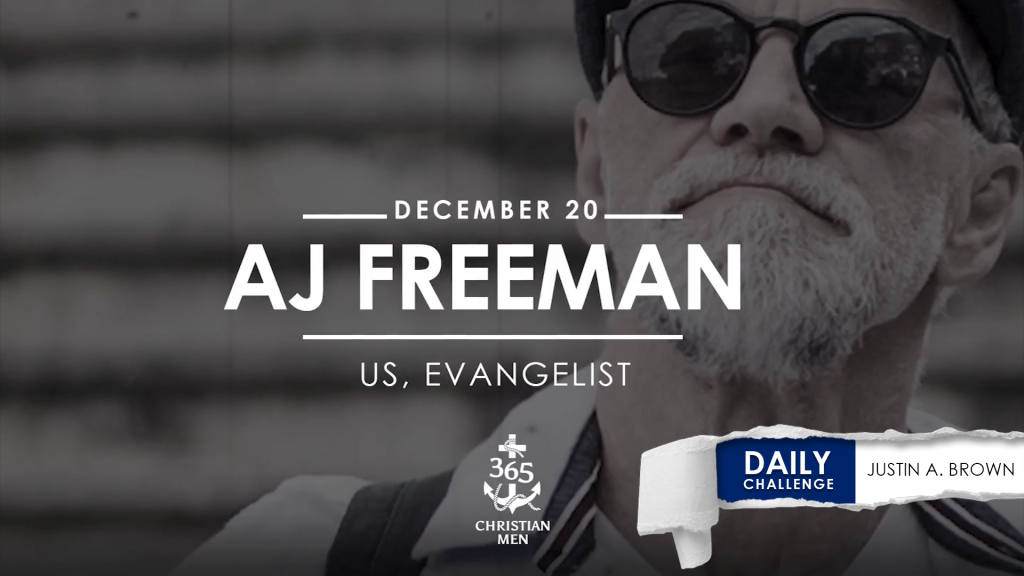December 20. AJ Freeman. After Freeman became totally blind, he heard the gospel from a nurse where he was hospitalized. He grabbed onto that word of truth and climbed out of a severe depression.
From there, Freeman went to the School of the Blind and learned a craft—how to make brooms. Before long, he opened a factory and employed 15 men, who made 600 brooms a day for him. In his spare time, he preached the gospel.
Freeman longed to preach the gospel, but he had to support his family, and—after all—he was blind.
One day, he came home and found his 10-year-old daughter teaching a group of children about Jesus, and the children were responding. Freeman took this as confirmation of his calling, and he took his little daughter as his preaching partner and guide. On this date in 1903, Freeman was ordained in the Swedish Free Church of Moline, Illinois. Here’s his story.
Challenges in a man’s life are resources in God’s hands.
Many people consider blindness a hurdle, but on Freeman’s first day as a preacher, it was clear nothing was going to slow him down. Freeman’s preaching always drew a crowd, and he was grateful they showed up, even if it was only out of sympathy or fascination.
Freeman didn’t preach in front of stained-glass windows or before a pulpit. He worked from a “church on wheels,” called Palmquist’s Memorial, and the mobile church was powered by two horses.
It’s hard to imagine a blind minister traveling around the state of Illinois with nothing but his young daughter to guide him, but God went before Freeman and provided everything he needed to answer his calling.
On that first day, as Freeman prepared to share Jesus with the local townspeople, there was some confusion as people mistook Palmquist’s Memorial for a fish cart, since the two looked remarkably similar.
With money in hand, a man approached the cart. “What kinds of fish are you selling?”
“I am not a fisherman, but a fisher of men!” Freeman told the visitor.
Soon another local approached, believing that Freeman was selling medicine.
Freeman explained that the only medicine he had to offer was the Good News of the Gospel.
The blind minister and his horse-drawn church on wheels proved to be an irresistible oddity for many, but Freeman didn’t mind. Children came from all over town to climb the mobile church and inspect its underside.
“Mister,” a little one said, “My mother gave me bread to feed the horses. May I?”
Every question and conversation made an opportunity for Freeman to scope out the hearts of those he spoke with and share the Good News of God’s saving grace. Blindness was an asset, not an obstacle.
“There are different kinds of gifts, but the same Spirit distributes them. There are different kinds of service, but the same Lord. There are different kinds of working, but in all of them and in everyone it is the same God at work. Now to each one the manifestation of the Spirit is given for the common good” (1 Corinthians 12:4–7 NIV).
The obstacle before you may be difficult; take the first step to overcome it. Challenges in a man’s life are resources in God’s hands.
“The Blind Swedish Evangel.” American Foundation for the Blind. 1917. https://archive.org/stream/blindswedishevan00alfr/blindswedishevan00alfr_djvu.txt.
Rusten, E. Michael and Sharon. “The Blind Evangelist.” The One Year Christian History. Michigan: Tyndale House Publishers, 2003. Pp. 710–711.
Story read by Daniel Carpenter





